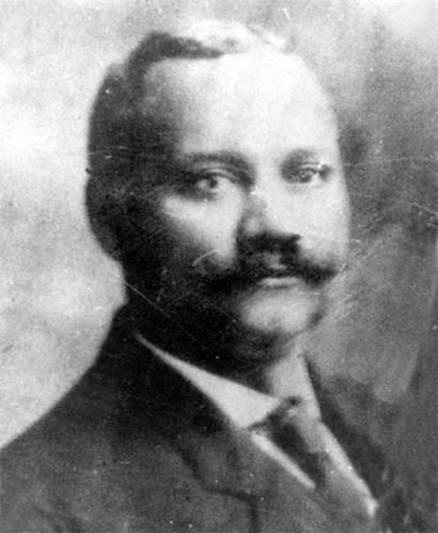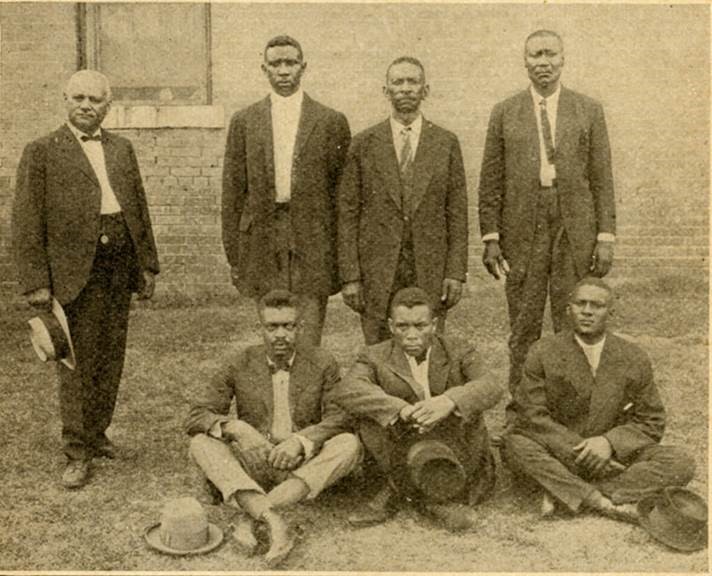Hill Legislation Commemorating Arkansas Civil Rights Champion, Scipio Jones, Signed into Law
Washington,
December 4, 2020
WASHINGTON D.C. — Today, Rep. French Hill (AR-02) announced that his bill, H.R. 3317, the Scipio Jones Post Office Portrait Act, was signed into law. Rep. Hill’s bill honors Arkansas civil rights champion and lawyer, Scipio Jones, by allowing his portrait to be displayed in the Little Rock post office that bears Jones’s name. This achievement is the result of inspiration by Little Rock attorney John Gill and collaboration with Gill and historian Dr. Brian Mitchell of the University of Arkansas at Little Rock.
“Here in Arkansas, we are deeply proud of Scipio Jones and his important contributions to our state, and to our nation, as a civil rights icon and lawyer. In the wake of the Elaine Race Massacre in 1919, Mr. Jones bravely and successfully defended twelve African American sharecroppers who had been wrongfully charged in connection to a crime they didn’t commit and placed on death row,” said Rep. Hill. “I am pleased that my bill, the Scipio Jones Post Office Portrait Act, finally has been signed into law to allow current and future generations to appreciate fully Mr. Jones’s critical role in shaping Arkansas’s history and the fight for equality. I am grateful to Sen. Boozman and Sen. Cotton for their partnership on the Senate version of this bill, my colleagues in the House and Senate for supporting this legislation, and President Trump for signing this bill into law. I also thank John Gill and Dr. Brian Mitchell for the many hours they spent helping with this project.”
“I extend my thanks to Rep. Hill for his efforts to introduce and pass this legislation recognizing Scipio Africanus Jones and his fight for racial equality. Though born a slave, Scipio Jones dedicated himself to public service and became an attorney in Little Rock. I was proud to work with Rep. Hill to honor this Arkansas civil rights champion with a portrait in the Little Rock Post Office names in his honor,” said Dr. Brian Mitchell, Assistant Professor of History at the University of Arkansas at Little Rock. “Scipio Jones played an important role in Arkansas’s history, especially in the volatile aftermath of the Elaine Massacre, and I am excited to see him honored in this way.”
About Scipio Jones Scipio Africanus Jones, who was born an enslaved person in 1863, attended Walden Seminary (now Philander Smith College) and then attended Bethel Institute (now Shorter College), earning his bachelor’s degree in 1885. In 1889, Jones passed the bar and was admitted to practice before the Supreme Court of Arkansas in 1900 and by the U.S. Supreme Court in 1905. After the horrific massacre of Black Americans in Elaine, Arkansas, in 1919, he defended 12 wrongly accused Black men who had been charged with murder and condemned by all-white juries. Despite its being described as a "race riot," most of the victims were Black, and most of the aggressors were white. With his clients already facing execution, Jones fought their convictions in both state and federal courts. An appeal was filed with the U.S. Supreme Court arguing that the accused had been denied due process of law. After reviewing the case, the Supreme Court agreed and overturned the convictions. Moore v. Dempsey changed the nature of the Fourteenth Amendment’s due process clause. The ruling allowed for federal courts to hear and examine evidence in state criminal cases to ensure that the defendants’ constitutional rights were protected. It was a landmark ruling that fundamentally changed American law by ensuring that those accused of a crime had received due process. About H.R. 3317, Scipio Jones Post Office Portrait Act In 2007, the House passed legislation to name the post office located at 1700 Main Street in Little Rock, Arkansas, after Jones. Today, a plaque at the post office bears his name, but post office regulations restrict the items that can be placed on display. On June 18th, 2019, Rep. Hill introduced legislation to allow a full-sized portrait of Scipio Jones to be on display at the post office in Little Rock which bears his name. Funds for the portrait will be raised privately and no taxpayer money will be spent on the artwork. The legislation passed the House Committee on Oversight and Reform on December 19th, 2019, passed the full House on February 5th, 2020, passed the Senate on November 18th, and was signed into law by President Trump on December 3rd, 2020. |




